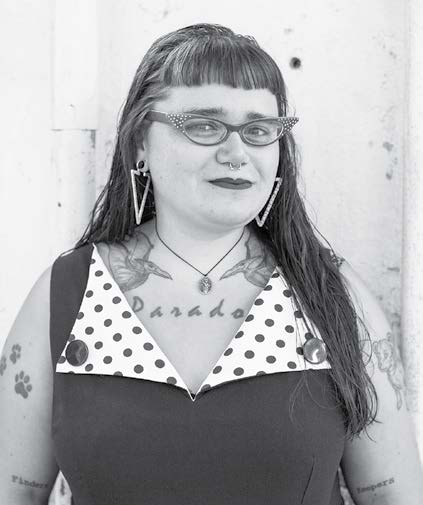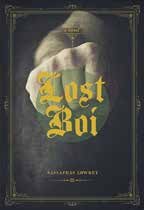Michele Karlsberg: For this issue of the San Francisco Bay Times, I present a guest article written by author Sassafras Lowrey.
I started writing in 2002, when I also became an active member of queer zine communities. My friends and I were creating independently produced publications about queer and trans identities, bad dates, good dates, funny adventures with friends, sex, George W. Bush, my dogs, politics, vegan food, and anything else that was of interest to young LGBTQ punks.
Sure, there were cool kids in the zine scene—I was living in Portland, Oregon, (capitol of the zine world) at the time—but on the whole, there wasn’t competition; there was community. None of us were competing for book deals, or literary awards. There were no six figure fantasy advances. This was the perfect introduction to the literary community for me.
We were all printing our zines at Kinko’s copy centers and getting paid in concealed dollar bills stuffed into envelopes sent through the postal system. Because of this, and a relationship to the local feminist independent bookstores where I ran an open mic/zine read for several years, I have always deeply prioritized building community with other writers, and specifically other LGBTQ writers. For me, a foundation in this kind of scrappy lit community where we are not only excited about our own work, but also enthusiastically supportive of each other’s new projects, is the kind of queer writing community that I am committed to participating in, and continue to foster, even though I haven’t written a zine in over a decade.

I’m as much of an introvert as the next writer, and I love how writing is a solitary art form. But at the same time, I can’t emphasize enough the importance of queer writers finding a way to get involved with the LGBTQ literary community. Even more important, I think it’s essential for writers to foster their own little corner of community, aka friends in the writing world. This month, I had the opportunity to read the manuscript of a book releasing sometime soon whose author, while very experienced, was feeling insecure about the new book and looking for feedback.
During the same week, I was leaning heavily on a different group of author friends while I waited for some big news from publishers about a new book, and was preparing to go back to school after a decade to start an MFA program. Showing up for my community of queer writers, and the ways that community has consistently held, challenged, and supported me, has made me a much better writer.
 I know a lot of writers complain about the presence of the internet in their lives and the push for authors to be online in order to market their books, but I’ve always been the opposite. Since the days of AOL chat rooms, LiveJournal, and now the myriad of social media platforms, I’ve found social media to be an excellent tool to bring the literary community together. The internet has to allowed me to find, connect and—when I’m lucky—to maintain close relationships with writers all over the world.
I know a lot of writers complain about the presence of the internet in their lives and the push for authors to be online in order to market their books, but I’ve always been the opposite. Since the days of AOL chat rooms, LiveJournal, and now the myriad of social media platforms, I’ve found social media to be an excellent tool to bring the literary community together. The internet has to allowed me to find, connect and—when I’m lucky—to maintain close relationships with writers all over the world.
Are you looking for easy ways to start building LGBTQ community? Follow writers you admire, message writers to tell them how much you like articles or books that they write, comment on the pictures they share and more.
When building friendships with other writers, it can be so easy to reinforce toxic dynamics that mainstream culture glorifies, like cattiness and competitiveness when, for example, someone scores a big book deal, or gets a great review. The LGBTQ writing community doesn’t have to be that way. Not only does being in competition with other writers feel crappy, but it also doesn’t foster the kind of literary friendships that I am invested in having.
For me, having a community of LGBTQ writers means celebrating when the times are good, and commiserating when a project flops. Your literary community doesn’t have to look like a structured writing group. It can just be the buddies with whom you share cute videos most of the time, but who might have your back when you need a book blurb, when they need someone to review a short story and give honest feedback, or when someone needs a laugh after their book gets a bad review, or a rejection.
As a queer writer who predominantly writes queer books for queer readers, I believe LGBTQ writers need connection to one another not just to support our work, but also to support each other in the work. In this cultural moment, it is especially important for our community to stand unified with all LGBTQ people, and not just gay and lesbian writers. We need our LGBTQ literary spaces to explicitly be welcoming to genderqueer writers, transgender writers, bisexual writers, queer writers, intersex writers, pansexual writers, asexual writers, leather writers—to name just a few.
The need for queer literary spaces is also why I believe so much in the Lambda Literary Foundation (http://lambdaliterary.org/) and all of the work they do, as well as independent bookstores, and the Saints & Sinners Literary Conference in New Orleans (http://sasfest.org/), all of which are important sites that bring community together. Check them out, and find ways to get involved. Not only will you be supporting a larger LGBTQ literary community, but you also might make some friends.
Sassafras Lowrey is a teenage runaway who grew up to become the 2013 winner of the Lambda Literary Emerging Writer Award. Hir books—Lost Boi, A Little Queer as Carol, Roving Pack, Kicked Out and Leather Ever After—have been honored by organizations ranging from the National Leather Association to the American Library Association. Sassafras lives and writes in Brooklyn with hir partner, and their menagerie of dogs and cats. Learn more at www.SassafrasLowrey.com
Michele Karlsberg Marketing and Management specializes in publicity for the LGBT community. This year, Karlsberg celebrates thirty years of successful book campaigns.
Recent Comments